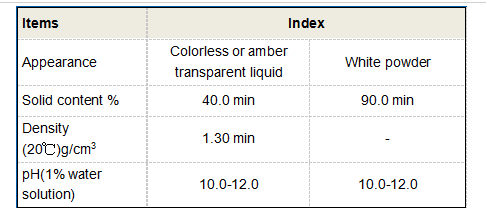Effective Strategies for Preventing Water Scale Buildup with Innovative Inhibitor Solutions
Understanding Water Scale Inhibitors A Key to Sustainable Water Management
Water is an essential resource for life, but its quality is often compromised by various factors, including impurities and mineral deposits that can result in scale formation. In commercial and industrial settings, scale can lead to significant issues like reduced efficiency in heating systems, blocked pipes, and increased maintenance costs. To combat these challenges, water scale inhibitors play a crucial role in managing and optimizing water quality.
What are Water Scale Inhibitors?
Water scale inhibitors are chemical substances designed to prevent or reduce the formation of scale, particularly calcium and magnesium deposits, in water systems. These inhibitors work by altering the physical or chemical properties of the minerals present in the water, thus preventing them from crystallizing and adhering to surfaces. By doing so, they help maintain the flow of water in pipes and machinery, ensuring efficient operation.
Types of Water Scale Inhibitors
Several types of water scale inhibitors are commonly used. One of the most popular categories includes phosphonates, which effectively sequester hardness ions and prevent scale formation. These substances work by forming stable complexes with calcium and magnesium, thus keeping them dissolved in the water.
Another type includes polyacrylate-based inhibitors, known for their ability to disperse scale-forming particles and prevent them from settling. Additionally, chelating agents, such as EDTA, are employed to bind metal ions, ensuring they do not precipitate out and form scale.
Applications in Various Industries
water scale inhibitor

The use of water scale inhibitors extends across various industries, including power generation, oil and gas, and water treatment. In power plants, for example, scale buildup can drastically reduce heat exchange efficiency, leading to higher operational costs and energy wastage. By employing scale inhibitors, these facilities can enhance their efficiency and prolong the lifespan of their equipment.
In the oil and gas sector, scale formation can pose severe issues during extraction and processing. Inhibitors are utilized to prevent scale in wellbores and pipelines, ensuring unobstructed flow and reducing the risk of costly downtime. Moreover, water treatment facilities leverage these inhibitors to maintain the quality of treated water, ensuring compliance with environmental regulations.
Environmental Considerations
While water scale inhibitors are essential for modern industrial applications, their environmental impact must also be considered. Many traditional inhibitors, particularly those containing phosphates, can lead to eutrophication in aquatic systems when discharged. Thus, the industry is increasingly turning to eco-friendly alternatives with lower environmental footprints.
Biopolymers and natural-based inhibitors are gaining popularity as sustainable alternatives. These substances not only mitigate scale formation but also pose minimal risk to aquatic ecosystems. The development and adoption of such green technologies represent a significant step forward in combining effective water management with environmental stewardship.
Conclusion
Water scale inhibitors are vital instruments in the toolbox for sustainable water management. By preventing scale formation, they help enhance operational efficiency across various industries, minimize maintenance costs, and extend the lifespan of essential equipment. As the push for more environmentally friendly practices continues, the development of innovative scale inhibitors will play a pivotal role in ensuring that both industrial needs and environmental health are met. Integrating these solutions into water management strategies is a crucial step toward preserving this precious resource for future generations.
-
Water Treatment with Flocculant Water TreatmentNewsJun.12,2025
-
Polymaleic AnhydrideNewsJun.12,2025
-
Polyaspartic AcidNewsJun.12,2025
-
Enhance Industrial Processes with IsothiazolinonesNewsJun.12,2025
-
Enhance Industrial Processes with PBTCA SolutionsNewsJun.12,2025
-
Dodecyldimethylbenzylammonium Chloride SolutionsNewsJun.12,2025





